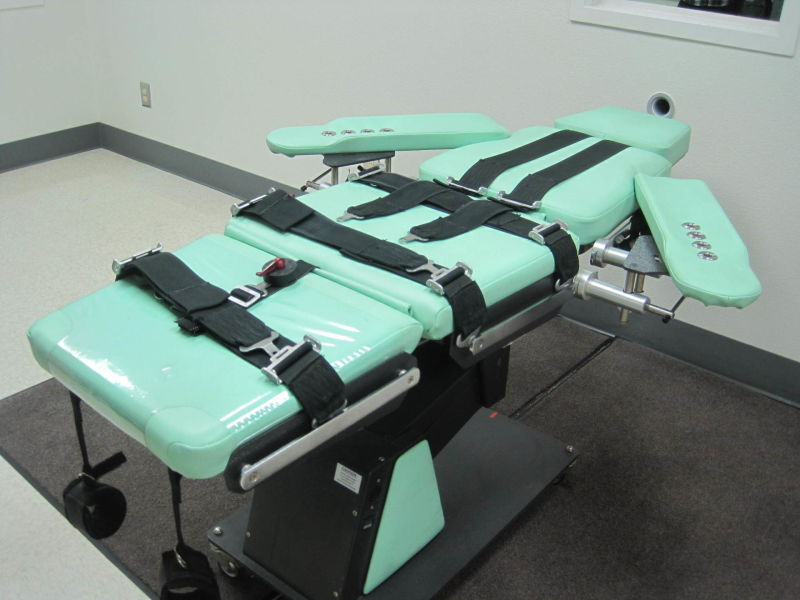Arguing for the State Attorney General's Office, Michael Mongan acknowledged that the system is a lengthy one. He said that is in order to avoid mistakes.
“We do not believe that there's any evidence, not on this record or any we're aware of, that the system is arbitrary or random or leads to random results,” Mongan told the court. He went on to say that California insists on a careful review of death penalty cases, and that takes time.
But attorney Michael Laurence, representing Jones, said appeals drag on because California refuses to fund enough attorneys to represent death row inmates. The state's capital punishment process provides for au automatic appeal of every death sentence to the California Supreme Court; federal appeals usually follow.
“The average time it takes in the state courts exceeds 20 years,” Laurence said. “I don't think it is a stretch to say that a system that produces such lengthy delays constitutes a gross malfunction of the criminal justice system.”
Laurence referred to a report by the bipartisan Commission on the Fair Administration of Justice on how to fix a “dysfunctional” system, mainly with an infusion of funds to provide attorneys for death row inmates.
“That was 2008, and not one dime has been spent to fix this problem,” Laurence noted.
Truth is, with a governor and an attorney general who oppose the death penalty, along with the Democratic majority in the Legislature, death penalty opponents may figure that starving the legal appeals process for condemned inmates will slow it down enough to essentially invalidate it.
The state has also responded very slowly to a 2006 order by U.S. District Court Judge Jeremy Fogel, who stopped executions until California’s lethal injection procedure was changed. Earlier this year the California Department of Corrections and Rehabilitation agreed to submit a new protocol for review by the end of October.
Much of Monday’s hearing focused on technical issues, including whether this case belonged in federal court at all. Attorneys for the state argued that the condemned inmate must exhaust all his appeals in state court first. It's unclear where the justices will come down on that.
(As an aside, all three judges in the panel were appointed by Democratic presidents, two by Bill Clinton and one by Barack Obama. But any legal expert will say you can't read tea leaves based on that alone.)
After today’s oral arguments, Santa Clara University Law School Professor Ellen Kreitzberg said that if the lower court decision vacating Jones' sentence is upheld, it will lead to many more lawsuits -- even if it's appealed to the U.S. Supreme Court.
“Every person on death row in California will now raise the claim that the delay there, the whole process by which they're brought to execution in California is unconstitutional,” said Kreitzberg, “and these sentences of death should be converted to life without the possibility of parole.”
The delays outrage advocates for crime victims.
Kent Scheidegger, of the Criminal Justice Legal Foundation in Sacramento, predicted Judge Carney’s decision will be reversed. The silver lining, he said, is that the dysfunctional nature of the state’s capital punishment system has gotten renewed attention.
He hopes it may also rekindle interest in a ballot measure, once backed by three former California governors, to speed up the appeals process.
On the other hand, death penalty opponents are considering another ballot measure to ban capital punishment and convert all death sentences to life without the possibility of parole. In 2012 voters narrowly rejected a measure to do just that.
